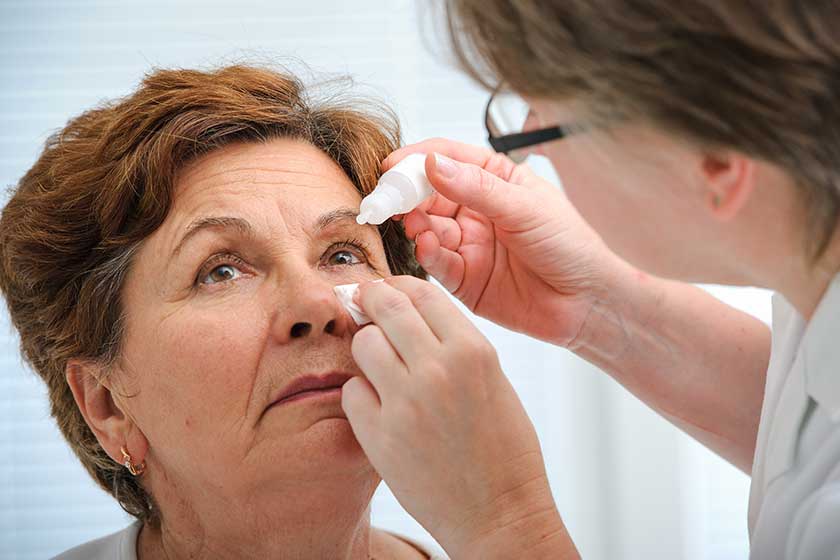In America, eye problems are becoming a common problem and condition in older adults. In fact, by age 65, one-third of the demographic will develop a form of eye condition that can impair vision permanently. Here are some of the more common eye problems in the elderly.
Macular Degeneration
Macular Degeneration curtails sight by affecting mainly the central vision. While the condition doesn’t usually cause complete blindness, but it can severely impair the vision making it challenging to perform daily functions like driving and reading. In the initial stages, central vision can gradually become wavy or blurry. When advanced, the person’s central sight can even completely disappear but the peripheral vision remains since the other parts of the retina is healthy still.
It is considered an incurable eye condition and there are few treatment options to slow the progress of the disease such as anti-angiogenic drugs and laser surgery. Low-vision devices can also aid individuals in keeping active and living an independent life despite poor vision.
Cataracts
Cataracts envelop the eye’s transparent lens that contain water and protein. But when the protein clumps together, it can start to block light transmission through the lens. If the cataract gets worse and starts to severely impair vision, the only viable option would be to undergo surgery to replace the clouded lens with new ones.
If your loved ones frequently bemoan about double vision, glare, halos around lights, or cloudy vision, he or she may likely require surgery to correct the problem.
Diabetic Retinopathy
This condition is related to a complication of diabetes and can be a potentially blinding disorder. Diabetes can cause anomalous changes in the blood vessels of the retina and they become leaky and grow in improper places. The new blood vessels are more likely to break and cause bleeding. The damaged blood vessels can contract and detach the retina as they try to heal.
Common symptoms of diabetic retinopathy can include dark objects that seem to “float” across the field of vision, distorted vision, shadows, pain, and partial loss of vision. Currently, diabetic retinopathy is incurable but laser treatment is usually very effective at preventing loss of vision if it is done before the retina has been severely damaged.
Glaucoma
Glaucoma happens when the pressure within the eye is raised, which can damage the optic nerve and lead to blindness and vision impairment. The initial stages are usually symptom-less, so almost one million people may have glaucoma without realizing it.
As the disease worsens, peripheral vision gradually fails and exacerbates tunnel vision if left untreated. There are many forms of medications that are used to treat glaucoma but sometimes, medications alone can’t successfully control the disease, and surgery is necessary.
If your loved one has an eye condition, do consider our personal care program at Rittenhouse Village At Lehigh Valley as we provide professional personalized care while having 24-hour nursing, on-site medical services, and timely medication management. We also have a variety of amenities that can engage our residents and ensure they enjoy living their life while receiving the required assistance with daily living activities.
Contact us today regarding eligibility for any of our programs.







